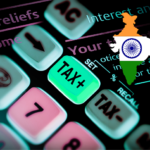Financial Freedom is an easy concept to grasp; it involves spending less than you earn.
If you earn $60k a year and only spend $40k, the $20k you save – if saved correctly – will get you upwards and onward to true financial peace and serenity.
However, the practical reality of this easy path is much, much harder in practice. Unexpected expenses, unforeseen circumstances, and even humanness (i.e., I want this thing now!) can make this ideal freedom state challenging to keep in mind.
So what is a Spend-Wise person to do? See below for tips and tricks from MyProfitArea on how to ensure that you spend less than you earn.
#1 – Keep the Long Run in Mind
Being human, it’s easy for us to write off the coffee or small purchase as a ‘one-time’ thing that won’t make a difference in the long-run.
Believing this, it’s no wonder that the practical method of saving is a challenge for most people. That $3.50 coffee you buy each morning might not seem like a lot, but if done on a regular basis, it turns into quite an expense!
If purchased each day throughout the year, that cup of coffee would turn out to be an expense of $1,277.50. What else could you do with that money?
If you took that money and invested it, that would continue to increase your returns. Even having that money sitting in a money market account earning interest would be money working for you.
Saving on these small purchases is a key to maximizing the principle of “spend less than you earn.”
#2 – Make Saving Automatic
Making saving automatic has been taught from the beginning of time, but its importance is such that it bears constant repetition.
Are you having difficulties in investing on a regular basis? Or putting money in your savings account?
If so, set up an automatic withdrawal of a certain percentage of your paycheck (any bank worth its salt should have this auto savings option available). This is the classic ‘set-it and forget-it’ mentality; your future self will be glad that you did.
By not having the money in your hands in the first place, you will more easily spend less than you earn.
#3 – Set Small Stepping Stones
A gentle progression towards an achievable goal is much easier than setting a huge goal and then seeing each time how far away you are from the achievement of that goal.
For instance, if you have a goal of saving $100,000, rather than have that daunting task laid out before you, start with saving $10,000. Once you reach that goal, celebrate your victory, then set a new step-up goal.
These smaller increments will help keep the momentum going, you’ll see progress, and life will feel pretty dang good as you’ll be constantly achieving small goals.
This is often referred to as the ‘brick-by-brick’ mentality towards goal achievement.
#4 – Create Your List of Reasons
What reasons do you have for saving money? Do you wish to start up your own business? Or perhaps make a large purchase (house, car, etc.)? Or maybe you’re saving up for a rainy day.
Whatever the reason, having it in the forefront of your mind allows you to better fend off those desires and cravings for material items that are not needed.
Your reasons can and will keep you grounded and help you achieve the financial freedom you desire.
#5 – Celebrate All The Successes
If you have a goal of saving $100,000, that could be a long time until it pay off (unless you’re Jeff Bezos of course).
So, if you gauge all of your progress against this one metric, it is fairly easy to lose hope and encouragement on your upward trajectory.
While I do advocate keeping the big picture in mind, break it down into smaller stepping-stone goals that you can easily celebrate.
For instance, if you have $10,000 in savings, set a goal for $12,000 in 2/3/4 months – whatever the time frame is – and celebrate when you achieve that.
Once you achieve that mini-level goal, then set another smaller achievable goal – perhaps $15,000 – and work your way towards that metric! Doing so will give you a momentum boost as you see progress being made.
#6 – Expect the Unexpected: Plan for Rainy Days
Goals are never easy; life, for that matter, is never easy either. Expect that there will be some curveballs headed your way, and be flexible with the adjustment.
Preparing and planning for the unexpected will help you spend less than you earn.
Your car may break down and you need to dip into your emergency funds to buy a new vehicle. Or possibly your company is downsizing and your income stream will disappear for a while.
All of the sudden, the realistic goal of saving ‘X’ amount per month becomes unrealistic.
This is OK and, this is natural. Put your savings goal on hold, focus on building a new income stream (multiple income streams if possible!), and once you have the money flowing again, reassess your position.
It’s not what happens to you that matters; it’s how you handle it.
#7 – Set an Emergency Fund Goal
An Emergency Fund is one of the most important priorities for you as an individual investor. Those ‘Unexpected Events’ that were discussed above become a lot more manageable if you have an emergency fund handy with which to absorb the blow.
After all, this is the purpose of emergency funds in the first place.
Set a financial goal for the size of your emergency fund, hit that goal, and then reassess where you will direct your future savings.
My personal gauge for how much should be in an Emergency Fund is about 6-12 months of expenses.
Figure out what the magic number is for you and start building towards that today.
#8 – Stay Humble and Stay Grounded
Lately, I’ve been watching the show ‘Entourage.’ It’s been very entertaining but I’m amazed by the complete audacity of how the characters live.
They earn a solid paycheck, and rather than be diligent and save, they automatically go out and spend every last dime.
Now, I know this is fantasy and not reality, but it is this financial irresponsibility that we have to guard against on a daily basis.
I’d love to have 50 different cars from the latest and greatest manufacturers, but then I have to ask myself, “Do I need this?” “Will this new thing make me happy?” Often, the answer is indeed no.
The late, great Dr. Wayne Dyer always advocated to decrease material possessions as the pathways to happiness. I don’t advocate a life of misery and want, but there is much truth in the idea of living modestly.
Conclusion
These are only a few of the many tips out there for achieving the life goal of Financial Freedom! They can indeed help you to spend less than you earn, only if you follow them judiciously.
Also, be on the lookout for more tips in the future.
The key to consistently practicing the principle of spending less than you earn is not easy. In fact, it can be quite challenging, but once practiced, it is definitely worth it.
Do you have any good tips to share? Could you share them below?









